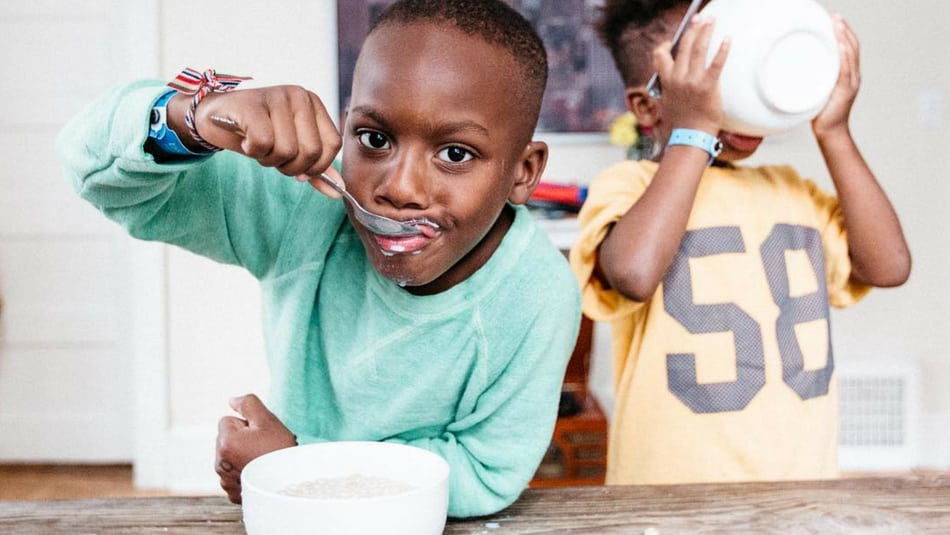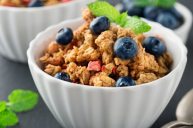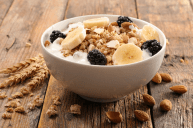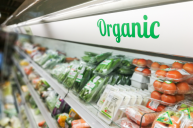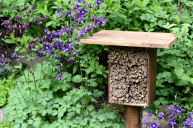Would you like some weed killer with your breakfast cereal? The glyphosate herbicide is showing up in tests of some of the most popular breakfast foods and your kids may especially be in danger from exposure to this chemical.
Videos by Wide Open Country
The Environmental Working Group (EWG), an environmental advocacy organization, tested 29 foods that contain oats, including granola bars, instant oatmeal, and cereal. All but five of those foods contained the herbicide glyphosate.
Right now, there's no global agreement among regulatory agencies on the risk from glyphosate exposure. The World Health Organization (WHO) classified glyphosate as a possible carcinogen, meaning it may cause cancer, in 2015 after the International Agency for Research on Cancer reviewed U.S., Canadian, and Swedish studies in addition to research done on animals. The state of California also considers it carcinogenic to humans, and in 2017 added glyphosate to the state's Proposition 65 registry of chemicals known to cause cancer.
The EPA and the European Union have it listed as safe, although the EPA is currently reviewing the registration of glyphosate-based pesticides for human health or ecological risk and the EU has only reauthorized the chemical's use for another five years instead of the 15 requested.
EWG's report notes that California's Office of Environmental Health Hazard Assessment (OEHHA) has "proposed a so-called No Significant Risk Level for glyphosate of 1.1 milligrams per day for an average adult of about 154 pounds. That level of exposure is more than 60 times lower than the safety level set by the Environmental Protection Agency."
The glyphosate herbicide is best known as the active ingredient in Roundup, the Monsanto weed killer used most often in the United States. Monsanto, who recently became part of Bayer AG, denies that glyphosate exposure has any toxic effects on human health and claims that the chemical is completely safe as long as it is used according to the label instructions.
A jury in California disagreed with the company earlier this month. They awarded $289 million to a school groundskeeper who claimed his non-Hodgkin lymphoma was caused by exposure to Roundup herbicide and other glyphosate-based herbicides. Another 450 lawsuits are pending against Monsanto in the U.S. District Court in San Francisco; all of them say that Monsanto knew about these risks, but covered it up.
The risk is important because even if there is a minimum safe level of exposure when it's used as a herbicide, farmers don't only employ the widely used herbicide to fight weeds; they also use it to speed up the harvest of grain crops.
Because grains need to be stored, often for a long time, what goes into storage silos needs to be dry or else the grain may rot. The drying process happens naturally as the plants die each growing season, which is when the farmers harvest the grain. To speed up the process, many grain farmers are using glyphosate herbicide to artificially accelerate the drying process.
The key to the glyphosate's risk to humans may be in part when it's used. The U.S. Environmental Protection Agency (EPA) backs up Monsanto's claim that glyphosate is safe as long as it's used according to the directions. Roundup was designed to kill weeds, meaning that in general it's application happens well before the food is harvested. But for grains, the application happens three to seven days before harvest.
Ensia, a nonprofit magazine that focuses on environmental challenges and solutions reported on the use of the glyphosate herbicide as a drying agent and noted that using the chemical on grains right before harvest is why glyphosate may be showing up in these cereals. They talked to an expert, who said:
"Pre-harvest desiccation may account for only a small percentage of overall glyphosate use," says Charles Benbrook, a visiting scholar at the Bloomberg School of Public Health who has spent more than a decade studying the use of glyphosate and associated health risks. "But it accounts for over 50 percent of dietary exposure."
Babies and children are more susceptible to carcinogens, so their risk from glyphosate exposure is greater. And since kids are prime consumers of cereal, granola bars, and oatmeal, they may be on the receiving end of dangerous levels of glyphosate.
Even organic products may contain some glyphosate. While organic grains are not allowed to use pesticides containing glyphosate, the chemical still makes its way into those foods via cross-contamination in production or by drifting from one field to another.
Nature's Path (who was one of the brands tested) says on their website: "Glyphosate use has skyrocketed in the past decade, and it maintains the ability to adhere to water and soil particles long enough to travel through the air or in a stream to nearby organic farms."
Here are the results from EWG's tests.
Higher levels of glyphosate herbicide
- Back to Nature Classic Granola
- Quaker Simply Granola Oats, Honey, Raisin and Almonds
- Nature Valley Granola Protein Oats 'n Honey
- Giant Instant Oatmeal Original Flavor
- Quaker Dinosaur Eggs (Brown Sugar, Instant Oatmeal)
- Great Value Original Instant Oatmeal
- Umpqua Oats, Maple Pecan
- Market Pantry Instant Oatmeal (Strawberries & Cream)
- Cheerios Toasted Whole Grain Oat Cereal
- Lucky Charms (without marshmallows)
- Barbara's Multigrain Spoonfuls cereal
- Kellogg's Cracklin' Oat Bran oat cereal
- Nature Valley Crunchy Granola Bars (Oats 'n Honey)
- Quaker Steel Cut Oats
- Quaker Old Fashioned Oats
- Bob's Red Mill Steel Cut Oats
Lower levels of glyphosate herbicide
- Back to Nature Banana Walnut Granola Clusters
- KIND Vanilla, Blueberry Clusters with Flax Seeds
- Kellogg's Nutrigrain Soft Baked Breakfast Bars (Strawberry)
- Nature's Path Organic Old Fashioned Organic Oats
- Whole Foods Bulk Bin conventional rolled oats
- Bob's Red Mill Organic Old Fashioned Rolled Oats
No glyphosate herbicide
- Nature's Path Organic Honey Almond Granola
- Simple Truth Organic Instant Oatmeal
- Kashi Heart to Heart Organic Honey Toasted cereal
- Cascadian Farm Organic Harvest Berry Granola Bars
- 365 Organic Old-Fashioned Rolled Oats
